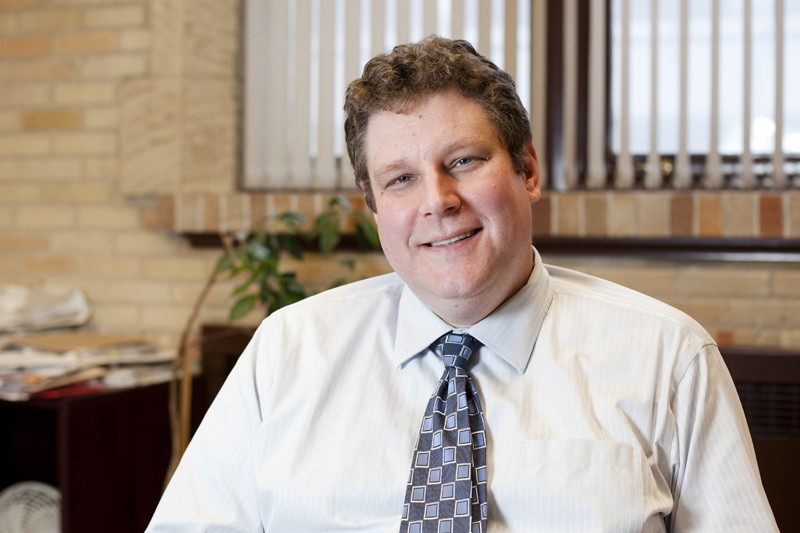Struggling to make the grade
Some students slip through the cracks in the university’s mental health support system
When Zem Dyck began attending classes at the University of Winnipeg in the fall of 2010, she had already been diagnosed with depression and anxiety issues, but she did not realize how hard that year would be for her.
Dyck was taking introductory courses, working towards a degree in human rights and global studies.
“You have your days where you’re like, ‘I can do this. I’m taking medication, I’m doing all these things and, so far, it’s working,’” Dyck said.
“But you have days where it’s not working, where nothing makes sense, where you can’t concentrate and you need a mental break but you don’t get one.”
In the second semester, Dyck’s partner left her with an apartment she couldn’t afford, and a family tragedy left her without the emotional support she was used to.
“Family falling apart, having to move, being stressed about money - all of this is difficult to begin with, never mind if you have a condition that makes you unstable,” Dyck said.
Her professors were supportive and offered her extensions, but by then, Dyck had lost the energy to complete her courses, and the voluntary withdrawal (VW) date had passed.
“You’re not in the state of mind to frame any sort of appeal for anything, let alone finish your schoolwork. It feels like such an immense amount of pressure,” she said.
The university does not offer enough support for students dealing with mental health issues, Dyck said.
When she attempted to appeal for a retroactive withdrawal (RW), Dyck was told to come for a 10-minute drop-in session with an academic advisor.
“It was very hard for me to express the whole situation in the time limit. She basically said I didn’t have much of a case,” Dyck recalled.
University registrar Colin Russell said it is difficult to judge academic advisors’ assessments of individual cases like Dyck’s.
“I would presume that based upon the information provided they were just giving an honest opinion that the committee would not be inclined favourably towards that appeal,” he said.
If students are unable to withdraw from a course before the VW date, they can apply for a RW, which would remove the courses in question from their transcripts.
“RW regulations state that we want to have demonstration that circumstances beyond a student’s control compromised the student’s ability to continue with the course,” said Russell.
While many students appeal for RWs based on medical circumstances, there is no way of knowing how many of these cases were related to mental health issues, said Russell.
The appeals process is accessible and supportive for students with mental health issues, he added.
“We could always do a better job of making the environment as welcoming as possible but the support and assistance is available from advisors,” said Russell.
Not all students find the university lacks support systems for students dealing with a mental health issue.
Sarah Livesey, who graduated from the university with an honours degree in English literature last year, said faculty and staff at the university played a major role in helping her get through her last semester.
“ You’re not in the state of mind to frame any sort of appeal for anything let alone finish your schoolwork. It feels like such an immense amount of pressure.
Zem Dyck, student
When her mother passed away at the end of 2010, her professors offered her extensions and resources, and directed her towards the university’s personal counseling services.
“(My counselor) was really helpful and was definitely a major factor in getting me through the last term,” Livesey said.
Livesey stressed the importance of being open with professors.
“Everyone I know (at the university) is genuinely concerned with the success of the students and the well-being of the students,” she said.
Debra Abraham Radi, executive director of the university’s office of the vice-president academic, said the number of students using counseling services at the university is growing.
Students are more aware of the services available to them and are becoming more willing to seek help, Radi said.
“I think we are doing a better job of breaking down some of those stigmas of using supports or saying that you need additional support systems,” said Radi.
In spring 2011, the university launched a campus-wide mental health initiative, said Radi.
The initiative included a campaign to promote the importance of mental health, a mental health first aid course to students and faculty, and the week-long Take 5 Program, encouraging individuals to take five minutes for their mental health, said Radi.
An alternative to formal counseling is Peer Support, a counseling service funded by the University of Winnipeg Students’ Association.
“It’s mainly to offer that one-on-one connection between peers of the same age in case they feel it would be too much to see a full-out counselor,” said Shaun Dyer, peer support coordinator.
Students come to Peer Support with a wide range of issues, but the most common ones are anxiety and eating disorders, said Dyer.
Peer Support volunteers go through a one-day training session and partner with on-campus counselors to learn how to serve students best.
As for Dyck, she is discouraged but is still meeting with advisors to resolve her situation.
“I was fully invested in my education and I still am,” she said. “The fact that they’re making it so difficult is a little bit mind-boggling.”
Published in Volume 66, Number 18 of The Uniter (February 1, 2012)







